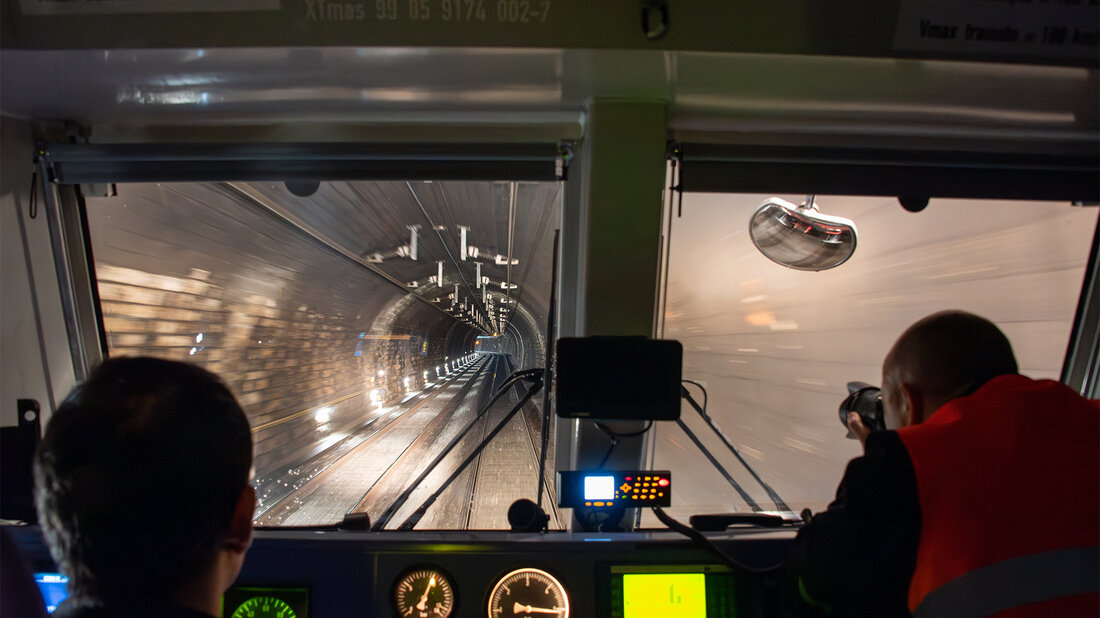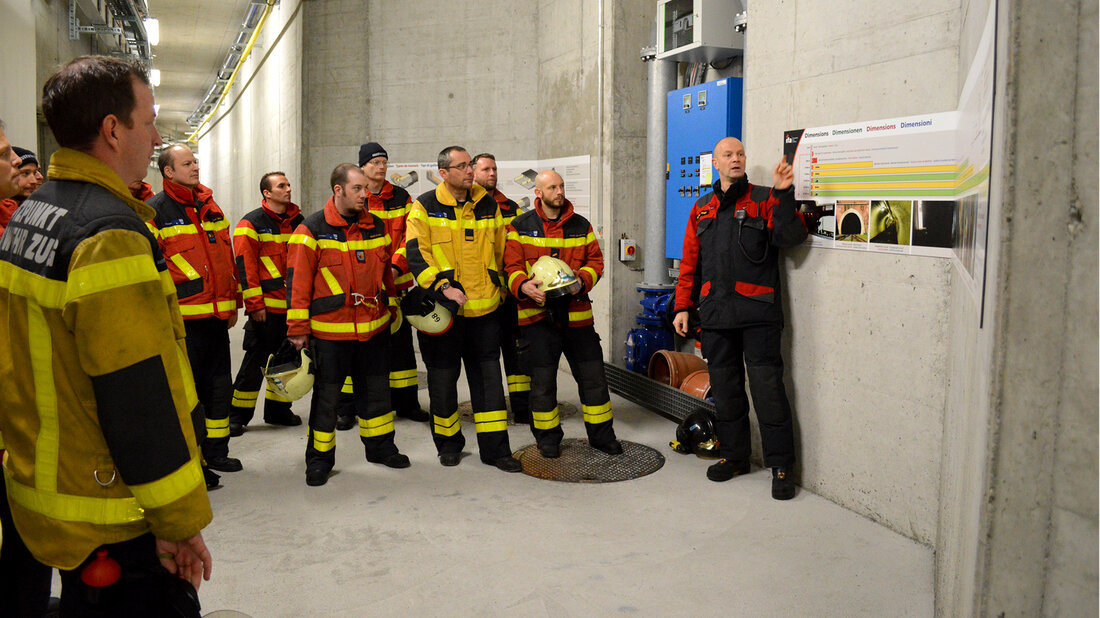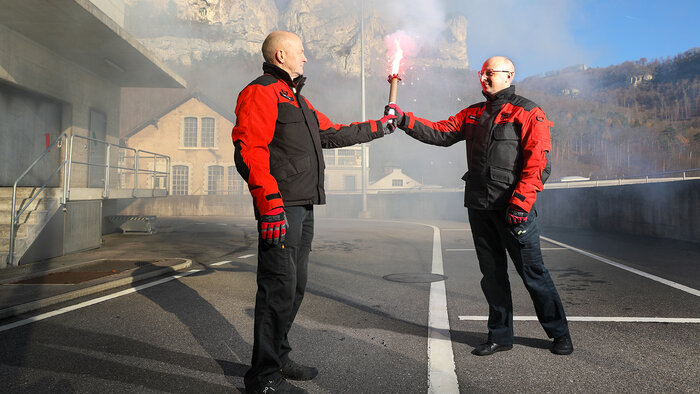Since the International Fire Academy was founded, he has been part of the team: instructor and training consultant Markus Vogt. He retired on 30 June 2024 - and will remain associated with us for special projects. In this article, Markus Vogt gives a very personal review of fifteen and a half years at the International Fire Academy.
The training tunnel facility was the deciding factor
Markus Vogt started as a full-time instructor in 2009, worked on developing the first tunnel firefighting procedure and was then successively Head of Training and Head of Consulting. Most recently, he accompanied fire services from (almost) all over the world for many years as a training consultant on the way to their courses in Balsthal and Lungern. The training tunnel facility under construction was the reason for him to join the International Fire Academy in 2009 as one of two full-time instructors.
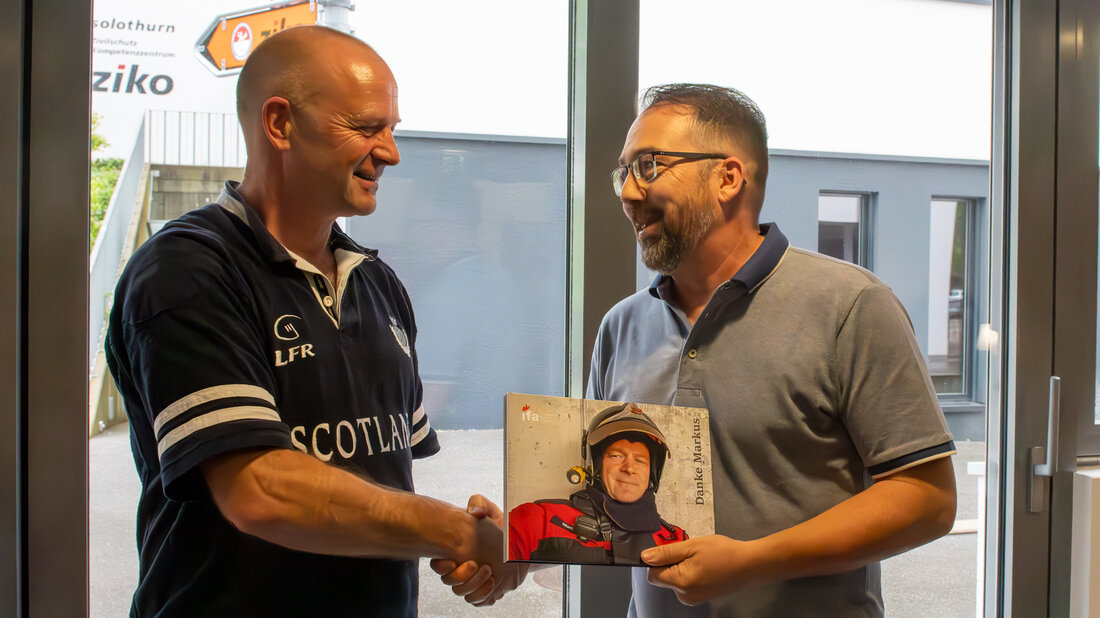
«I didn't want to apply for the job in the first place. Then, the fire service instructor team from the canton of Basel-Landschaft, of which I was a member, was invited to visit the construction site of the training tunnel. That was on a Friday evening in October. As I was touring the construction site, I said to Christian Schwarz, then Head of Training & Development: ‹I'm actually regretting that I didn't apply.› He simply replied to me: ‹Apply. I have only filled one of two positions so far.› »
Training tested with the «own» fire service
«It started right away with an exciting time. We have developed without knowing where this will lead us. We knew that we were dealing with tunnel incidents. But there were no guidelines, no regulations, nothing. Like me, Roland Gfeller, the second full-time instructor, was the commander of a local fire service. We asked for volunteers from our fire services to test the lessons and drills in Lungern and later in Balsthal. As a result, my local fire service in Allschwill was better trained in tunnel firefighting than the rest of Switzerland at the end of 2009, even though we didn't even have a tunnel in our municipality.»
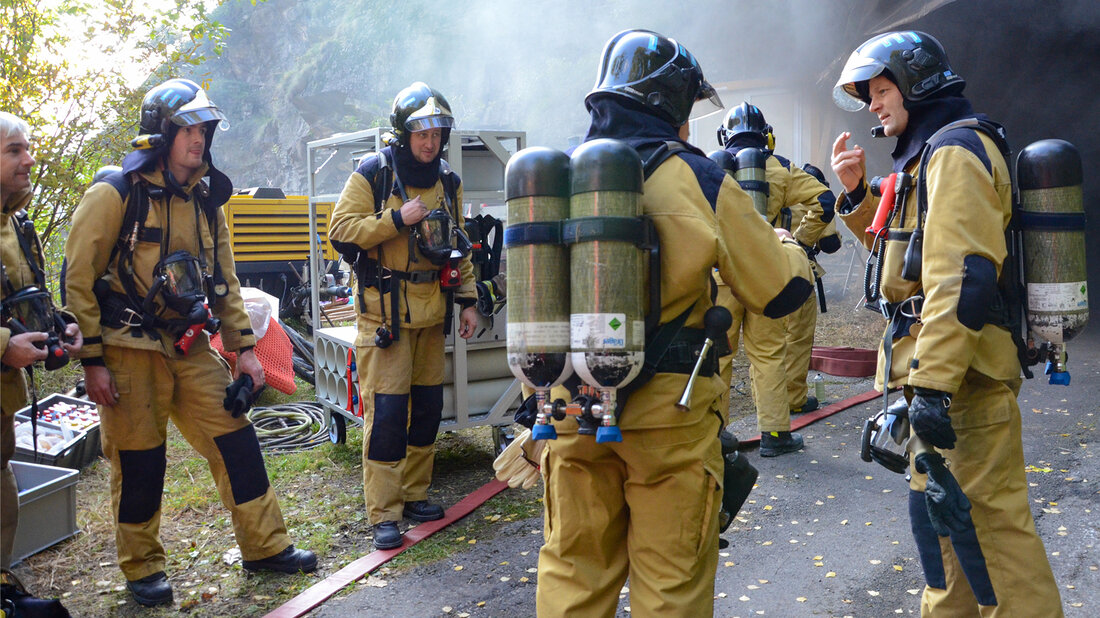
«My biggest realisation about tunnel operations was that the three aspects - reconnaissance, firefighting and search & rescue - actually work, and with the simplest means. In fact, we didn't need any more equipment than we had used at the time - except for the search sticks and marking lights, it was all standard equipment that fire services already had at their disposal. And what is used daily also works in the event of an incident. Suppose you introduce something «exotic» into training that is only intended for one specific scenario and is otherwise never used. In that case, it usually doesn't work when this rare incident suddenly occurs.»
A culture that is increasingly being imitated
Optimising training has been a significant concern for Markus Vogt throughout his career as a firefighter. Therefore, the experiential learning at the International Fire Academy suited him very well. One development is particularly admired and adopted by many fire services.
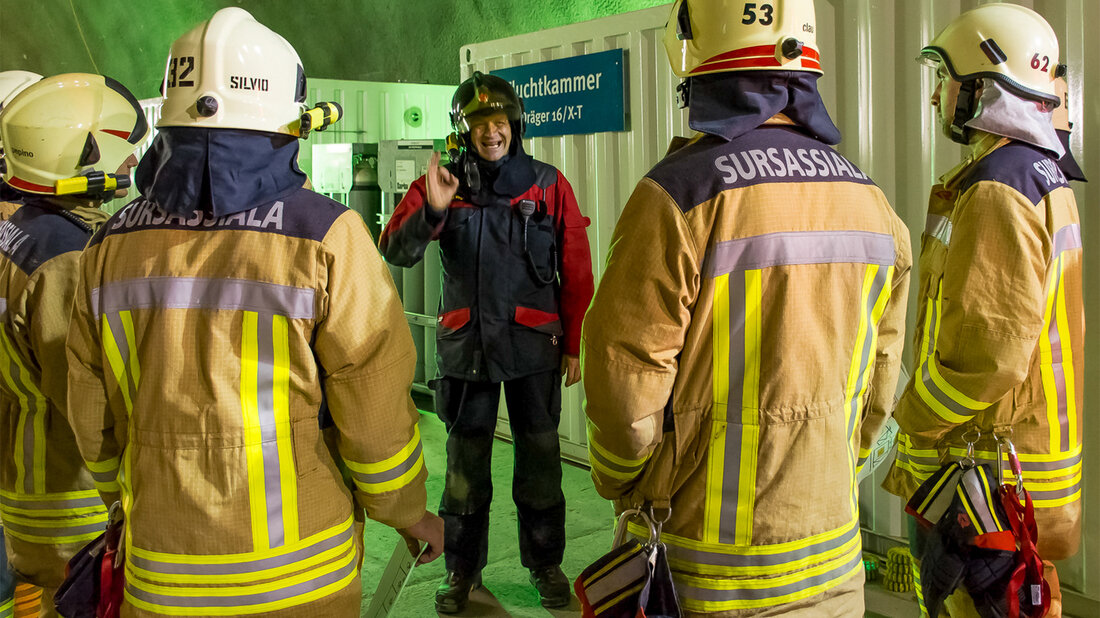
«Our feedback culture is unique. Under the management of Marianne Wernli, Head of Training, the team of instructors developed and introduced the feedback system. In the past, we also used to deliver long monologues during training debriefings and overloaded our feedback to course participants. Together, we managed to boil the whole system down to three feedback points so that the course participants would have a chance to improve precisely on these points in the subsequent drill. In this way, one drill builds on the other and course participants can gradually improve thanks to the focused feedback. In the end, all participants achieve good or even excellent results. For me, this feedback system is one of the highlights that is now appreciated worldwide.»
Operational drill becomes an event with an expert audience
This feedback system turned a training course in Berlin into an event for the railway and police personnel. «On the last day of the fire service's annual training for Berlin Airport, we carried out training drills in the Heuboden, a never-completed S-Bahn junction building with access directly opposite the Holocaust memorial and diagonally opposite the American embassy. During the drill, ten fire service vehicles with roller containers suddenly arrived, as did the police, railway and security services. A hatch in the ground was opened, and off you went underground. Of course, everyone was informed in advance the first time - except the American embassy.»
But this «incident» did not turn the training into an event. Instead, it was the Swiss instructor's direct feedback that first caused astonishment and then enthusiasm. An instructor who doesn't mince his words and says what he sees, what is good and what can be improved, was at least «not normal» at that time. There were training sessions where up to 20 observers came to experience the Heuboden feedback.
An understanding for different fire service cultures
As a training consultant, Markus Vogt has travelled to fire services in many countries on all continents - with the exception of Australia. The understanding of different cultures required in this work goes far beyond linguistic understanding.
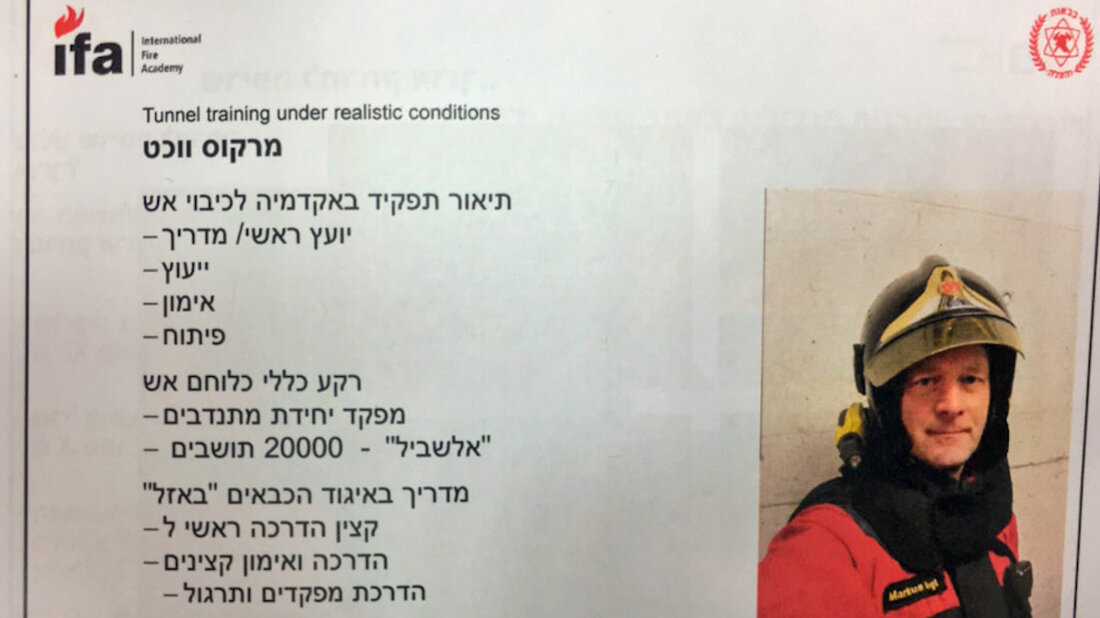
«I was impressed by an experience with Ostrava. I was initially there for a week and gave two of our classic one-day training courses. The training courses lasted two days each because we had to work with interpreters. The two groups then subsequently joined us at the ifa and completed the road tunnel training course. One of the fire officers was my interpreter. I unquestioningly trusted that he would translate what I explained to him. During the second course, the participants had a heated discussion about something in their language during the break. I didn't understand a word, but I sensed that something couldn't be right. So I took the interpreter to my side, and sure enough, they had misunderstood something, and we were able to clear up the misunderstanding.»
«We are not in kindergarten»
There was not always a spontaneous understanding on the part of all fire services for the experience-orientated approach with which Markus Vogt solved problems in training. It became clear with one customer: The team leaders had difficulties leading, so it was impossible to implement the Tunnel Firefighting Procedure well. So Markus Vogt offered a half-day workshop and came up with suitable training.
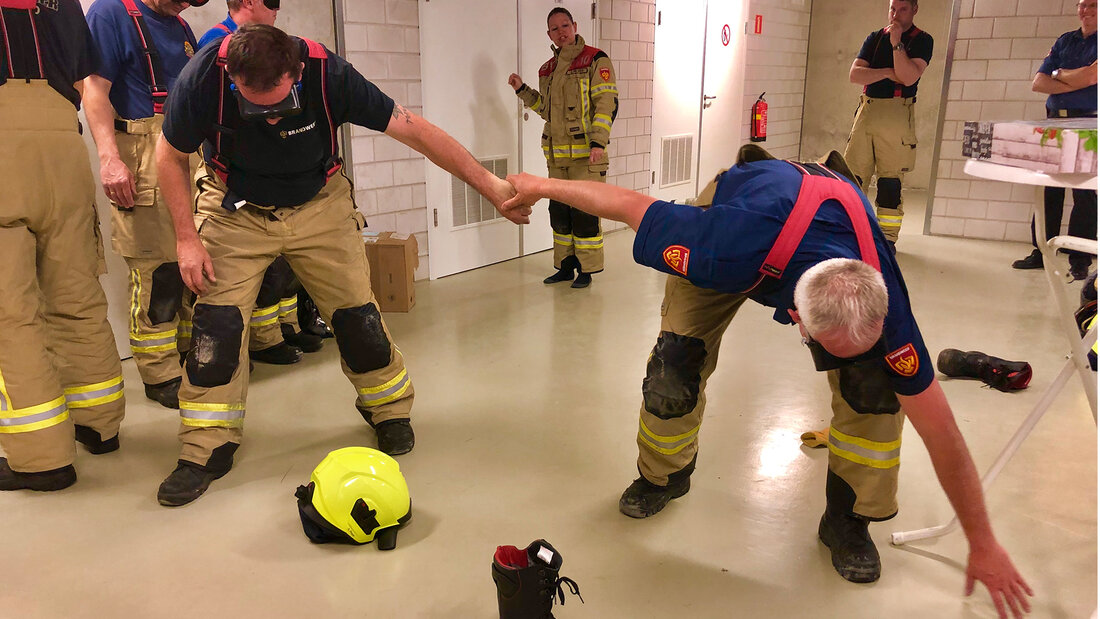
«When I presented my workshop programme, one of the local instructors looked at me with irritation and said: ‹We can't do kindergarten!› We then voted on whether to try out the programme - four to two votes were in favour. My idea was to organise the workshop playfully and as a competition. The group leaders formed a team with a comrade wearing black glasses and could not see anything. His task was to direct the blind comrade so that he hit certain targets with the nozzle. He then had to use the thermal imaging camera to find PET bottles filled with warm water in a completely dark room and instruct his comrade to take the PET bottles to a collection point. During the third exercise, the team leader stood ready in his uniform while all his equipment was scattered around the room before him. His team-mate, this time as a blind butler, had to bring the items to him in the right order so that he could equip himself correctly. At the end of the first round, one of the participants, whom I had found to be the most critical up to that point, came up to me and said: ‹That was the best training I've ever done. Can I do that tonight with my fire service?› »
One Tunnel Firefighting Procedure for all tunnels?
«Is what has been developed in Switzerland suitable for our fire service and tunnels?» Markus Vogt heard this question above all in the early years of training consultancy - including in Scandinavia, where Markus Vogt received the award for an outstanding contribution to training for tunnel safety in the event of a fire at the «Fire Protection and Safety in Tunnels» conference in Denmark in 2013 on behalf of the International Fire Academy.
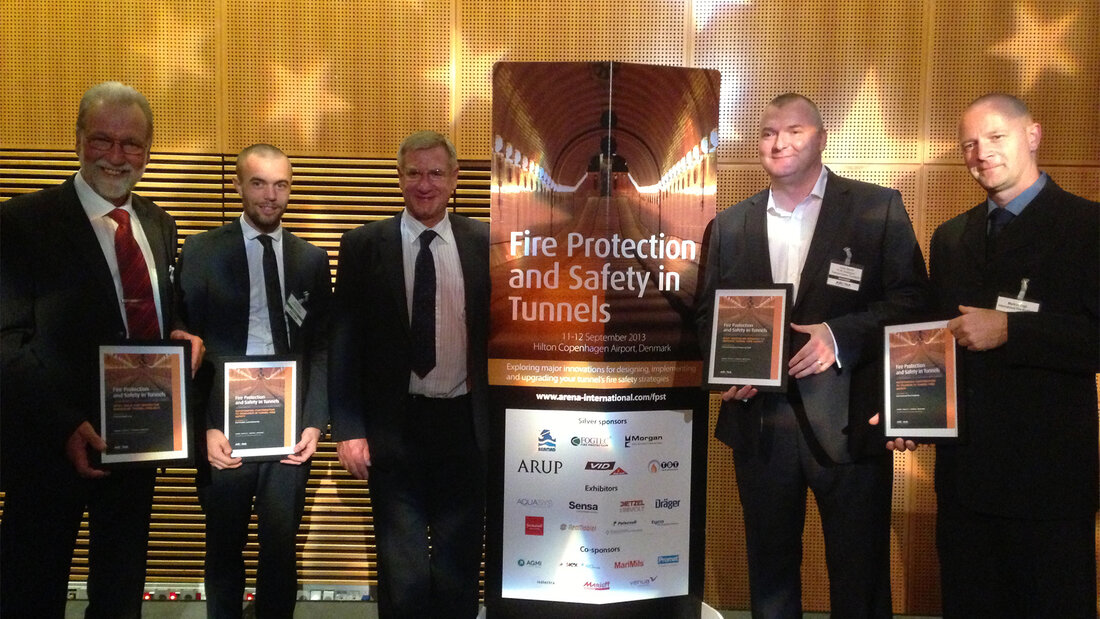
Markus Vogt particularly remembers the enquiry from the fire service authorities in the Stavanger region of Norway. «Two months before their booked training, I got a call: ‹Markus, we're not quite sure whether what you're training in Switzerland is also suitable for Norway.› We sat down together again, looked at various tunnels and finally agreed that we would do the first two days as we train in Switzerland. We leave the third day in Lungern open and adapt it to the Norwegian standards. On the second evening, I asked the group what we should do differently on the last day. They raised their beers: ‹Markus, we're sticking to the Swiss tactics. It works for us!› We then also organised the third day the Swiss way. The Norwegians then adopted what they had learnt from us.»
Open to everything new, even if not everything is allowed in your own country
«A very special course for me was the one for the Seattle Fire Department. The 14 colleagues knew very well that they were not allowed to implement everything we taught due to their regulations. But they came with the attitude: ‹We just want to experience everything and take out what we can do at home.› It was fantastic how interested and intensively the 14 colleagues took part. They are still a shining example to me today of all the open-minded customers I was privileged to experience.»
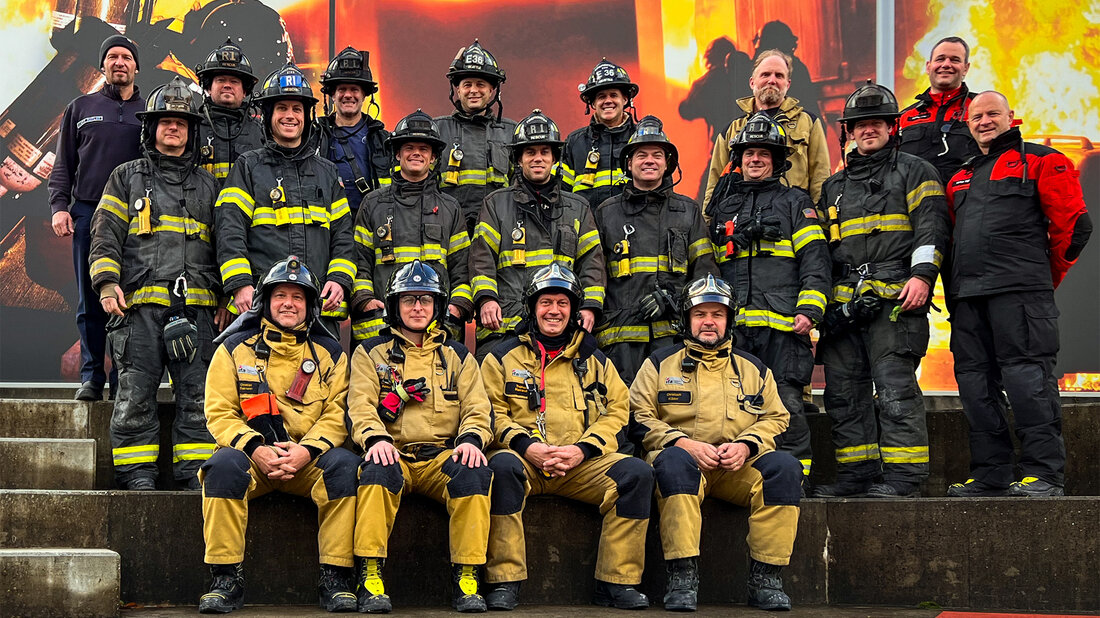
No time for boredom in retirement
As a part-time instructor and photographer, Markus Vogt will continue to accompany several courses a year at the International Fire Academy in his retirement. He is also open to new adventures. In January 2024, he obtained a blasting licence and was part of the team when the Castiel Viaduct on the Rhaetian Railway's Arosa Line was blown up. Together with his former colleague Ueli Roth, he also wants to take care of forest fire training for fire services. In his private life, travelling, including photo documentation, and performances with his pipe are still on his wish list. The next big event will take place shortly: Markus Vogt will be at the Basel Tattoo in July 2024.
